The office of Notary Public is a very ancient one dating back to Roman times and the acts of a Notary Public are recognised throughout the world.
A Notary Public (frequently referred to as a “Public Notary” or simply as a “Notary”), is a public officer constituted by law to serve the public in non-contentious matters usually concerned with estates, deeds, powers-of-attorney and foreign and international business.
The term Notary Public refers only to common law Notaries who practise in those countries in the world where the legal system is based on the British derived “common law,” (as in. e.g. the United Kingdom, Republic of Ireland, Australia, etc.) and should not be confused with civil law Notaries (as in, e.g. France, Spain, Brazil, etc.) whose functions are quite different.
In Northern Ireland, Notaries Public (who are solicitors appointed to that office by the Lord Chief Justice) come under the aegis of the solicitors’ branch of the legal profession but they have a number of separate and distinct functions.
The principal functions of a Notary Public are to:-
- administer oaths and affirmations,
- take affidavits and statutory declarations,
- witness and authenticate the execution of certain classes of documents,
- take acknowledgments of deeds and other conveyances,
- protest notes and bills of exchange,
- provide notice of foreign drafts,
- prepare marine or ship’s protests in cases of damage,
- provide exemplifications and notarial copies,
- draw up Powers of Attorney and other legal documents customarily prepared by Notaries Public, and
- perform certain other official acts depending on the jurisdiction.
The performance of any of the above functions is known as “notarization” and in doing so a Notary will perform what is known as a “notarial act”.
Within the United Kingdom and Ireland, the vast majority of a Notary Public’s work is in connection with overseas business. The largest single category of work in this jurisdiction is in connection with people buying and selling property abroad.
The purpose of having the execution of a document notarised is to verify, for the benefit of the person who will ultimately use that document, that the person executing it is who he says he is. It is also a safeguard as regards possible breaches of money laundering regulations having taken place.
It is not the function of the Notary to explain the nature or content of the document to you. He will, however, ask you to confirm that you understand the nature and content of the document and consequences that may arise if you sign it, before getting you to do so. He may even require you to sign a formal acknowledgement to that effect.
All Notaries Public in Northern Ireland are authorised to notarise documents for use anywhere in the world
